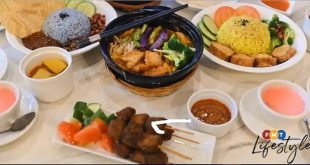It’s around 11:30pm on a Saturday and the city’s offices are finally winding down.
As businesses close for the night and people return home, Justin Cheah’s work is just beginning. In 10 minutes, he visited three of the capital’s top restaurants, as well as many more on his bucket list.
This kind of nighttime work is not new to Cheah; After all, he has been serving Kechara Soup Kitchen for over fifteen years now. In fact, he is the current director of an NGO that helps the poor and the homeless.
This Ramadan, as in previous years, Kechara has collaborated with many restaurants to help feed the hungry in the country. “Since 2016, our volunteers have been going to the streets to collect uncooked food from restaurants in Kuala Lumpur,” he told FMT Lifestyle.
According to Cheah, the partnership was started by Tengku Zatashah Idris, a socialite who works well in soup kitchens. He described how he was heartbroken in a hotel during Ramadan because of the amount of uneaten and wasted food. Since that night, Kechara has been working with restaurants to distribute excess food to many hungry people in the village.
“As of this year, we have 24 hotels, all based in KL,” said Cheah, adding that some hotels in Melaka are also working with local Kechara volunteers. the body. When the program started, only about a dozen hotels were participating. This number continues to increase over time, with the arrival of one large hotel this year. Cheah said: “We are growing every year. “Even during this pandemic, we are accepting new partners.”
Although the amount of food given varies from day to day, it adds up until the end of the holy month. In fact, Cheah said, in the first two weeks of Ramadan this year, Kechara received more than a ton of excess food! Many food offerings are foods that have a long shelf life, ensuring that they are safe to eat.
In the past, food was distributed directly to individuals and families in need; At this time, the food is delivered to the food distribution center. These range from homeless shelters to orphanages, where Kechara charities provide food to those in their care.
Given its success rate, this program will continue for the foreseeable future. “Of course, we are still actively looking for other partners to join us,” Cheah said.
Kechara accepts donations of cooked food, as well as essentials. “As long as we see the possibility of loss, we can help manage the situation.” Cheah said the hungry people in KL are struggling with the rising cost of living and many people are still dependent on Kechara’s assistance for their livelihood. The NGO, for its part, depends on the help it receives from well-meaning Malaysians. He said one way the public can help is by connecting Kechara with food producers who may have limited supplies to donate.
“You cannot help only during the month of Ramadan,” he added. “Any help is welcome at any time of the year, whether it’s through donations or volunteer work. »
